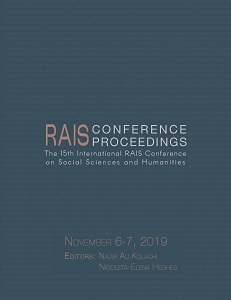Social Representations of Violence against Women in Cuba Is It a Consequence of Economic and Political Changes?
Social Representations of Violence against Women in Cuba Is It a Consequence of Economic and Political Changes?
Author(s): Roselín Martin-Ramos, Velia Cecilia Bobes-León, Flérida Guzmán-Gallangos
Subject(s): Victimology, Social Norms / Social Control
Published by: Scientia Moralitas Research Institute
Keywords: violence against women; collective imagination; myths; victim;
Summary/Abstract: The main purpose of this research is to analyze social representations (SR) of violence against women in three generations from Sancti Spiritus in a context of sociocultural changes. With this purpose, 28 people from three different generations were interviewed using the Snowball method. As part of the methodology, the semi-structured interviews, as well as the Free Association method (written variant) and the non-participant observation were used. The data obtained was interpreted with the qualitative paradigm. Myths about violence were found anchored in the collective imagination, without distinction of age. Likewise, there were changes in the SR of the three generations towards violence: the generation of older adults exhibits beliefs more attached to the government-supported discourse on equality; the youngsters blamed more the victim of violence and showed SR in which the control of man over woman is normalized. The intermediate generation exhibited SR more in accordance with reality. This generation, raised in a context of educational and social achievements, where inequality and social precarious brought by the special period, didn't have a dent in social values and norms, showed a less macho ideology.
Book: Proceedings of the 15th International RAIS Conference on Social Sciences and Humanities
- Page Range: 293-299
- Page Count: 7
- Publication Year: 2019
- Language: English
- Content File-PDF

